 2020 marked the 25th anniversary of the Women’s Prize for Fiction, a feat that was celebrated by the creation of a reading challenge to read all the winners including last year’s Hamnet by Maggie O’Farrell.
2020 marked the 25th anniversary of the Women’s Prize for Fiction, a feat that was celebrated by the creation of a reading challenge to read all the winners including last year’s Hamnet by Maggie O’Farrell.
There was a competition to find the winner of winners chosen by the reading public, and that award went to Chimamanda Ngozi Adichie for her novel Half of A Yellow Sun (2007).
Interviews, Recommendations, Opinion, On Writing
The team at the Women’s Prize have been active throughout the year and their website is a repository of much more than just longlists and winners.
There are regular features such as interviews with previous winners and nominees, recommendations from judges, for example this years judges Recommendations for Black History Month and Books You Should Discover in 2021.
There is an Opinion Section where you can read about Comedy in Fiction; Women Writer’s Revisited; and the On Writing Section where you can read Twelve Creative Tips From Women’s Prize Winning Authors.
Women’s Prize Fiction 2021 Long List
In the meantime, another season has come around and here are the 16 novels long listed, along with a short summary of their plot. It includes two Irish authors, six British and five American authors, one Canadian, one Barbadian and one Ghanaian/American.

The list features new and well-established writers across a range of genres and themes – family (twins and siblings, mother-daughter relationships); motherhood; rural poverty and isolation; addiction; identity and belonging; race and class; grief and happiness; coming-of-age and later life.
I have read one (review linked below) and I have Transcendent Kingdom. I’m disappointed not to see The First Woman by Jennifer Nansubuga Makumbi on the list, which I just finished today and is an outstanding novel, I highly recommend.
 The Vanishing Half by Brit Bennett (American)- The Vignes twin sisters will always be identical. But after growing up together in a small, southern black community and running away at age sixteen, it’s not just the shape of their daily lives that is different as adults, it’s everything: their families, their communities, their racial identities. Ten years later, one sister lives with her black daughter in the same southern town she once tried to escape. The other secretly passes for white, and her white husband knows nothing of her past. Still, even separated by so many miles and just as many lies, the fates of the twins remain intertwined. What will happen to the next generation, when their own daughters’ story lines intersect?
The Vanishing Half by Brit Bennett (American)- The Vignes twin sisters will always be identical. But after growing up together in a small, southern black community and running away at age sixteen, it’s not just the shape of their daily lives that is different as adults, it’s everything: their families, their communities, their racial identities. Ten years later, one sister lives with her black daughter in the same southern town she once tried to escape. The other secretly passes for white, and her white husband knows nothing of her past. Still, even separated by so many miles and just as many lies, the fates of the twins remain intertwined. What will happen to the next generation, when their own daughters’ story lines intersect?
Weaving together multiple strands and generations of this family, from the Deep South to California, from the 1950s to the 1990s, Brit Bennett produces a story that is at once a riveting, emotional family story and a brilliant exploration of the American history of passing. Looking well beyond issues of race, The Vanishing Half considers the lasting influence of the past as it shapes a person’s decisions, desires, and expectations, and explores some of the multiple reasons and realms in which people sometimes feel pulled to live as something other than their origins.
 Summer by Ali Smith (British)- In the present, Sacha knows the world’s in trouble. Her brother Robert just is trouble. Their mother and father are having trouble. Meanwhile the world’s in meltdown – and the real meltdown hasn’t even started yet. In the past, a lovely summer. A different brother and sister know they’re living on borrowed time. This is a story about people on the brink of change. They’re family, but they think they’re strangers. So: where does family begin? And what do people who think they’ve got nothing in common have in common?
Summer by Ali Smith (British)- In the present, Sacha knows the world’s in trouble. Her brother Robert just is trouble. Their mother and father are having trouble. Meanwhile the world’s in meltdown – and the real meltdown hasn’t even started yet. In the past, a lovely summer. A different brother and sister know they’re living on borrowed time. This is a story about people on the brink of change. They’re family, but they think they’re strangers. So: where does family begin? And what do people who think they’ve got nothing in common have in common?
Summer is the unmissable conclusion to Ali Smith’s Seasonal quartet.
 Detransition Baby by Torrey Peters (American)- Reese nearly had it all: a loving relationship with Amy, an apartment in New York, a job she didn’t hate. She’d scraped together a life previous generations of trans women could only dream of; the only thing missing was a child. Then everything fell apart and three years on Reese is still in self-destruct mode, avoiding her loneliness by sleeping with married men.
Detransition Baby by Torrey Peters (American)- Reese nearly had it all: a loving relationship with Amy, an apartment in New York, a job she didn’t hate. She’d scraped together a life previous generations of trans women could only dream of; the only thing missing was a child. Then everything fell apart and three years on Reese is still in self-destruct mode, avoiding her loneliness by sleeping with married men.
When her ex calls to ask if she wants to be a mother, Reese finds herself intrigued. After being attacked in the street, Amy de-transitioned to become Ames, changed jobs and, thinking he was infertile, started an affair with his boss Katrina. Now Katrina’s pregnant. Could the three of them form an unconventional family – and raise the baby together?
 Nothing But Blue Sky by Kathleen McMahon (Ireland) – Is there such a thing as a perfect marriage?
Nothing But Blue Sky by Kathleen McMahon (Ireland) – Is there such a thing as a perfect marriage?
David thought so. But when his wife Mary Rose dies suddenly he has to think again. In reliving their twenty years together David sees that the ground beneath them had shifted and he simply hadn’t noticed. Or had chosen not to.
Figuring out who Mary Rose really was and the secrets that she kept – some of these hidden in plain sight – makes David wonder if he really knew her. Did he even know himself?
 Consent by Annabel Lyon (Canada) – Saskia and Jenny are twins, alike in appearance only: Saskia has a single-minded focus on her studies, while Jenny is glamorous, thrill-seeking and capricious. Still, when Jenny is severely injured in an accident, Saskia puts her life on hold for her sister. Sara and Mattie are sisters with another difficult dynamic: Mattie needs almost full-time care, while Sara loves nothing more than fine wines, perfumes and expensive clothing, and leaves home at the first opportunity. But when their mother dies, Sara must move Mattie in with her. Gradually, Sara and Saskia learn that both their sisters’ lives, and indeed their own, have been altered by the devastating actions of one man…
Consent by Annabel Lyon (Canada) – Saskia and Jenny are twins, alike in appearance only: Saskia has a single-minded focus on her studies, while Jenny is glamorous, thrill-seeking and capricious. Still, when Jenny is severely injured in an accident, Saskia puts her life on hold for her sister. Sara and Mattie are sisters with another difficult dynamic: Mattie needs almost full-time care, while Sara loves nothing more than fine wines, perfumes and expensive clothing, and leaves home at the first opportunity. But when their mother dies, Sara must move Mattie in with her. Gradually, Sara and Saskia learn that both their sisters’ lives, and indeed their own, have been altered by the devastating actions of one man…
Consent is a novel of sisters and their knotty relationships, of predatory men and sexual power, of retribution and the thrilling possibilities of revenge.
 No One Is Talking About This by Patricia Lockwood – (American) A woman known for her viral social media posts travels the world speaking to her adoring fans, her entire existence overwhelmed by the internet – or what she terms ‘the portal’. Are we in hell? the people of the portal ask themselves. Are we all just going to keep doing this until we die? Suddenly, two texts from her mother pierce the fray: ‘Something has gone wrong’ and ‘How soon can you get here?’
No One Is Talking About This by Patricia Lockwood – (American) A woman known for her viral social media posts travels the world speaking to her adoring fans, her entire existence overwhelmed by the internet – or what she terms ‘the portal’. Are we in hell? the people of the portal ask themselves. Are we all just going to keep doing this until we die? Suddenly, two texts from her mother pierce the fray: ‘Something has gone wrong’ and ‘How soon can you get here?’
As real life and its stakes collide with the increasing absurdity of the portal, the woman confronts a world that seems to contain both an abundance of proof that there is goodness, empathy and justice in the universe, and a deluge of evidence to the contrary.
 How The One Armed Sister Sweeps Her House by Cherie Jones (Barbados) – In Baxter’s Beach, Barbados, Lala’s grandmother Wilma tells the story of the one-armed sister, a cautionary tale about what happens to girls who disobey their mothers. For Wilma, it’s the story of a wilful adventurer, who ignores the warnings of those around her, and suffers as a result.
How The One Armed Sister Sweeps Her House by Cherie Jones (Barbados) – In Baxter’s Beach, Barbados, Lala’s grandmother Wilma tells the story of the one-armed sister, a cautionary tale about what happens to girls who disobey their mothers. For Wilma, it’s the story of a wilful adventurer, who ignores the warnings of those around her, and suffers as a result.
When Lala grows up, she sees it offers hope – of life after losing a baby in the most terrible of circumstances and marrying the wrong man. And Mira Whalen? It’s about keeping alive, trying to make sense of the fact that her husband has been murdered, and she didn’t get the chance to tell him that she loved him after all.
How the One-Armed Sister Sweeps her House is the story of three marriages, and of a beautiful island paradise where, beyond the white sand beaches and the wealthy tourists, lies poverty, menacing violence and the story of the sacrifices some women make to survive.
 Transcendent Kingdom by Yaa Gyasi (Ghananian/American) – As a child Gifty would ask her parents to tell the story of their journey from Ghana to Alabama, seeking escape in myths of heroism and romance. When her father and brother succumb to the hard reality of immigrant life in the American South, their family of four becomes two – and the life Gifty dreamed of slips away.
Transcendent Kingdom by Yaa Gyasi (Ghananian/American) – As a child Gifty would ask her parents to tell the story of their journey from Ghana to Alabama, seeking escape in myths of heroism and romance. When her father and brother succumb to the hard reality of immigrant life in the American South, their family of four becomes two – and the life Gifty dreamed of slips away.
Years later, desperate to understand the opioid addiction that destroyed her brother’s life, she turns to science for answers. But when her mother comes to stay, Gifty soon learns that the roots of their tangled traumas reach farther than she ever thought. Tracing her family’s story through continents and generations will take her deep into the dark heart of modern America.
 Unsettled Ground by Claire Fuller (British) – What if the life you have always known is taken from you in an instant? What would you do to get it back? Twins Jeanie and Julius have always been different from other people. At 51 years old, they still live with their mother, Dot, in rural isolation and poverty. Inside the walls of their old cottage they make music, and in the garden they grow (and sometimes kill) everything they need for sustenance.
Unsettled Ground by Claire Fuller (British) – What if the life you have always known is taken from you in an instant? What would you do to get it back? Twins Jeanie and Julius have always been different from other people. At 51 years old, they still live with their mother, Dot, in rural isolation and poverty. Inside the walls of their old cottage they make music, and in the garden they grow (and sometimes kill) everything they need for sustenance.
But when Dot dies suddenly, threats to their livelihood start raining down. Jeanie and Julius would do anything to preserve their small sanctuary against the perils of the outside world, even as their mother’s secrets begin to unravel, putting everything they thought they knew about their lives at stake.
Unsettled Ground is a heart-stopping novel of betrayal and resilience, love and survival. It is a portrait of life on the fringes of society that explores with dazzling emotional power how we can build our lives on broken foundations, and spin light from darkness.
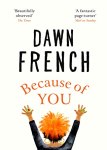 Because Of You by Dawn French (British) – Tick-tock, tick-tock, tick-tock . . . midnight.
Because Of You by Dawn French (British) – Tick-tock, tick-tock, tick-tock . . . midnight.
The old millennium turns into the new.
In the same hospital, two very different women give birth to two very similar daughters.
Hope leaves with a beautiful baby girl. Anna leaves with empty arms.
Seventeen years later, the gods who keep watch over broken-hearted mothers wreak mighty revenge, and the truth starts rolling, terrible and deep, toward them all. The power of mother-love will be tested to its limits. Perhaps beyond . . .
 Small Pleasures by Clare Chambers (British) – 1957, the suburbs of South East London. Jean Swinney is a journalist on a local paper, trapped in a life of duty and disappointment from which there is no likelihood of escape.
Small Pleasures by Clare Chambers (British) – 1957, the suburbs of South East London. Jean Swinney is a journalist on a local paper, trapped in a life of duty and disappointment from which there is no likelihood of escape.
When a young woman, Gretchen Tilbury, contacts the paper to claim that her daughter is the result of a virgin birth, it is down to Jean to discover whether she is a miracle or a fraud.
As the investigation turns her quiet life inside out, Jean is suddenly given an unexpected chance at friendship, love and – possibly – happiness. But there will, inevitably, be a price to pay.
 Piranesi by Susanna Clarke (British) – Piranesi lives in the House.
Piranesi by Susanna Clarke (British) – Piranesi lives in the House.
Perhaps he always has. In his notebooks, day after day, he makes a clear and careful record of its wonders: the labyrinth of halls, the thousands upon thousands of statues, the tides which thunder up staircases, the clouds which move in slow procession through the upper halls.
On Tuesdays and Fridays Piranesi sees his friend, the Other. At other times he brings tributes of food and waterlilies to the Dead. But mostly, he is alone. Messages begin to appear, scratched out in chalk on the pavements. There is someone new in the House. But who are they and what do they want? Are they a friend or do they bring destruction and madness as the Other claims?
Lost texts must be found; secrets must be uncovered. The world that Piranesi thought he knew is becoming strange and dangerous. The Beauty of the House is immeasurable; its Kindness infinite.
 The Golden Rule by Amanda Craig (British) – Intelligent, bookish and hard-working, Hannah is part of a generation that grew up in hope and has tried to escape life in Cornwall’s ugliest coastal town through a university degree, a professional career, and marriage to the privileged Jake. However, her life has gone disastrously wrong. Jake has left her for Eve and, reduced to near penury, she is desperate enough to agree to murder the brutal husband of Jinni, the rich woman she meets in the First Class carriage of the London to Penzance train, in return for having Jake killed.
The Golden Rule by Amanda Craig (British) – Intelligent, bookish and hard-working, Hannah is part of a generation that grew up in hope and has tried to escape life in Cornwall’s ugliest coastal town through a university degree, a professional career, and marriage to the privileged Jake. However, her life has gone disastrously wrong. Jake has left her for Eve and, reduced to near penury, she is desperate enough to agree to murder the brutal husband of Jinni, the rich woman she meets in the First Class carriage of the London to Penzance train, in return for having Jake killed.
However, when Hannah turns up at the remote Cornish house where Jinni’s husband is living intending to keep her promise, she meets a filthy, drunken, despairing man living in a house whose misery tells a very different story.
 Exciting Times by Naoise Dolan (Ireland) – When you leave Ireland aged 22 to spend your parents’ money, it’s called a gap year. When Ava leaves Ireland aged 22 to make her own money, she’s not sure what to call it, but it involves:
Exciting Times by Naoise Dolan (Ireland) – When you leave Ireland aged 22 to spend your parents’ money, it’s called a gap year. When Ava leaves Ireland aged 22 to make her own money, she’s not sure what to call it, but it involves:
– a badly-paid job in Hong Kong, teaching English grammar to rich children;
– Julian, who likes to spend money on Ava and lets her move into his guest room;
– Edith, who Ava meets while Julian is out of town and actually listens to her when she talks;
– money, love, cynicism, unspoken feelings and unlikely connections.
Exciting times ensue.
 Burnt Sugar by Avni Doshi (American) – In her youth, Tara was wild. She abandoned her arranged marriage to join an ashram, took a hapless artist for a lover, rebelled against every social expectation of a good Indian woman – all with her young child in tow.
Burnt Sugar by Avni Doshi (American) – In her youth, Tara was wild. She abandoned her arranged marriage to join an ashram, took a hapless artist for a lover, rebelled against every social expectation of a good Indian woman – all with her young child in tow.
Years on, she is an old woman with a fading memory, mixing up her maid’s wages and leaving the gas on all night, and her grown-up daughter is faced with the task of caring for a mother who never seemed to care for her. This is a poisoned love story. But not between lovers – between mother and daughter.
Burnt Sugar gradually untangles the knot of memory and myth that bind two women together, revealing the truth that lies beneath.
 Luster by Raven Leilani (American) – Edie is just trying to survive. She’s messing up in her dead-end admin job in her all white office, is sleeping with all the wrong men, and has failed at the only thing that meant anything to her, painting. No one seems to care that she doesn’t really know what she’s doing with her life beyond looking for her next hook-up.
Luster by Raven Leilani (American) – Edie is just trying to survive. She’s messing up in her dead-end admin job in her all white office, is sleeping with all the wrong men, and has failed at the only thing that meant anything to her, painting. No one seems to care that she doesn’t really know what she’s doing with her life beyond looking for her next hook-up.
Then she meets Eric, a white, middle-aged archivist with a suburban family, including a wife who has sort-of-agreed to an open marriage and an adopted black daughter who doesn’t have a single person in her life who can show her how to do her hair. As if navigating the constantly shifting landscape of sexual and racial politics as a young, black woman wasn’t already hard enough, with nowhere else left to go, Edie finds herself falling headfirst into Eric’s home and family.
Razor sharp, provocatively page-turning and surprisingly tender, Raven Leilani’s Luster is a painfully funny debut about what it means to be young now.
* * * * *
That’s it, a long list to look through, some familiar, others not. What looks tempting to you? Have you read any of these already that you’d recommend?
The judging panel will now whittle these 16 books down to a shortlist of 6 novels, announced on April 28th. The 25th winner of the Women’s Prize for Fiction will be announced on Wednesday 7th July.
Happy Reading!

 “Two journeys—one of countless migrant children making their way up from Central America and Mexico to the US border, and another of a fragile young family taking a road trip down from New York to the Mexican border—come together in this imaginative, heartfelt, and entirely original novel.
“Two journeys—one of countless migrant children making their way up from Central America and Mexico to the US border, and another of a fragile young family taking a road trip down from New York to the Mexican border—come together in this imaginative, heartfelt, and entirely original novel.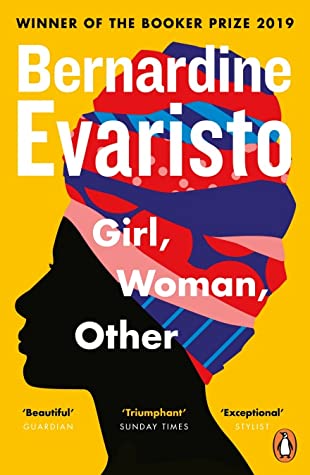 “A magnificent book fuelled by its own unique energy – one which catapults the novel form into an original, exhilarating direction. Twelve women’s lives are vigorously revealed, each character given an individual chapter of their own. And yet within these chapters Evaristo skilfully weaves all of their worlds together.
“A magnificent book fuelled by its own unique energy – one which catapults the novel form into an original, exhilarating direction. Twelve women’s lives are vigorously revealed, each character given an individual chapter of their own. And yet within these chapters Evaristo skilfully weaves all of their worlds together.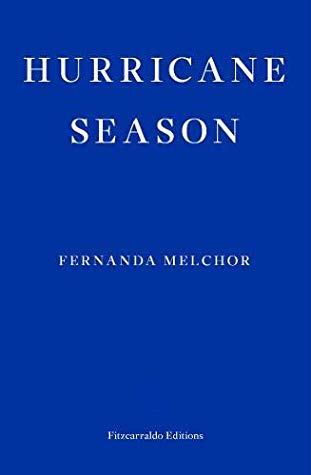 “Fernanda Melchor’s Hurricane Season is a ferocious novel that challenges and astonishes in equal measure. It portrays the most painful margins of a Mexican underworld of poverty and corruption, a universe dominated by a merciless violence that is deeply embedded in the community and in the actions and thoughts of its inhabitants, almost obscuring ant trace of empathy and humanity.
“Fernanda Melchor’s Hurricane Season is a ferocious novel that challenges and astonishes in equal measure. It portrays the most painful margins of a Mexican underworld of poverty and corruption, a universe dominated by a merciless violence that is deeply embedded in the community and in the actions and thoughts of its inhabitants, almost obscuring ant trace of empathy and humanity.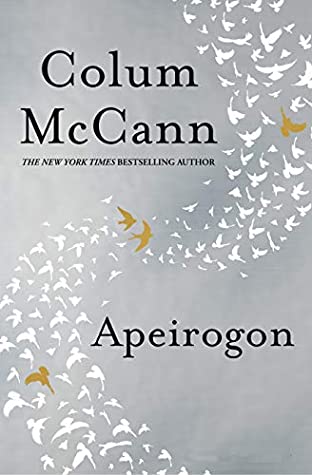 “They were so close that, after a while, Rami felt that they could finish each other’s stories”— Exploring Rami Elhanan and Bassam Aramin’s friendship and peace activism after the killings of their young daughters, Colin McCann’s novel Apeirogon, true to its title, ambitiously presents “a countably infinite number of sides” in its expansive exploration of injustice, loss, relationality and resilience.
“They were so close that, after a while, Rami felt that they could finish each other’s stories”— Exploring Rami Elhanan and Bassam Aramin’s friendship and peace activism after the killings of their young daughters, Colin McCann’s novel Apeirogon, true to its title, ambitiously presents “a countably infinite number of sides” in its expansive exploration of injustice, loss, relationality and resilience. “Ocean Vuong’s stunning debut novel, On Earth We’re Briefly Gorgeous is characterised by the same lyricality and powerful use of language he employs in his poetry. The novel takes the form of an extended letter.
“Ocean Vuong’s stunning debut novel, On Earth We’re Briefly Gorgeous is characterised by the same lyricality and powerful use of language he employs in his poetry. The novel takes the form of an extended letter. “Colson Whitehead’s emerged as a leading chronicler of African-American experience with The Underground Railroad in 2016. Where The Underground Railroad was expansive in its imagination, The Nickel Boys returns to the traumas of African-American history with a very different literary style. Set in a juvenile institution in Florida – the ‘Nickel Academy’ – in 1960s, Whitehead here writes with a pared-down narrative and prose style, tracing the scars of the past in the lives of the present. The writing is spare, clean, and direct; and the result is a novel that not only casts light on a dark moment of African-American history, but also speaks to stories of institutional abuse everywhere.”
“Colson Whitehead’s emerged as a leading chronicler of African-American experience with The Underground Railroad in 2016. Where The Underground Railroad was expansive in its imagination, The Nickel Boys returns to the traumas of African-American history with a very different literary style. Set in a juvenile institution in Florida – the ‘Nickel Academy’ – in 1960s, Whitehead here writes with a pared-down narrative and prose style, tracing the scars of the past in the lives of the present. The writing is spare, clean, and direct; and the result is a novel that not only casts light on a dark moment of African-American history, but also speaks to stories of institutional abuse everywhere.”
 An excellent collection of essays, of life writing with a particular connection to the body and how women negotiate life when part(s) of it malform and interrupt the ordinary course of a life, making it something extraordinary.
An excellent collection of essays, of life writing with a particular connection to the body and how women negotiate life when part(s) of it malform and interrupt the ordinary course of a life, making it something extraordinary.
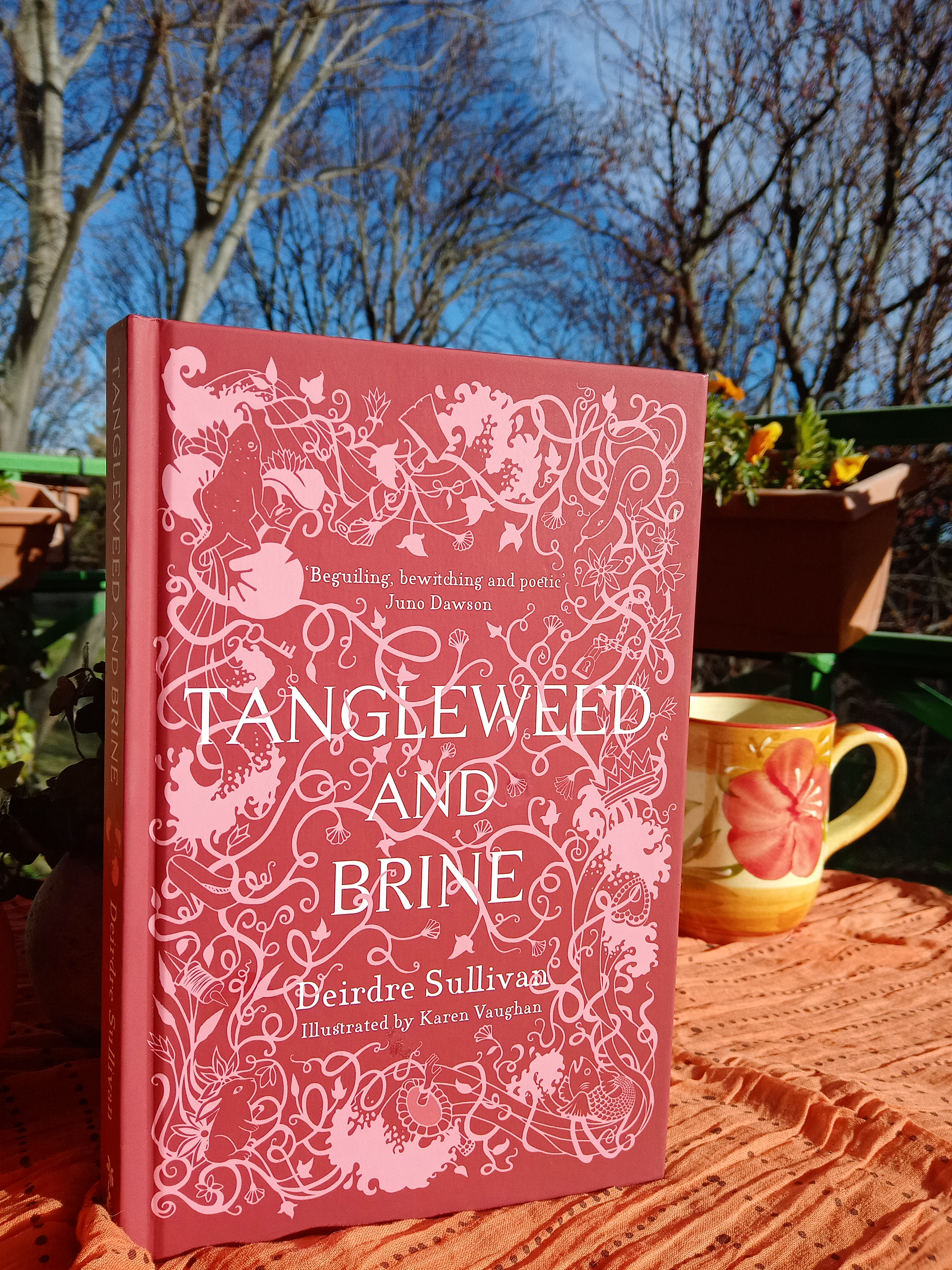 While Savage Her Reply was a long version of just one tale, in Tangleweed and Brine, we have an entire collection, cleverly separated into seven tangled tales of earth, and six salty tales of water. They can be dipped in and out of and are best read over a period of time, because they demand our attention, require reflection and strip the old tales of their illusory inclinations, suggesting quite frankly what really was going on with Red Riding Hood and her fellow heroines.
While Savage Her Reply was a long version of just one tale, in Tangleweed and Brine, we have an entire collection, cleverly separated into seven tangled tales of earth, and six salty tales of water. They can be dipped in and out of and are best read over a period of time, because they demand our attention, require reflection and strip the old tales of their illusory inclinations, suggesting quite frankly what really was going on with Red Riding Hood and her fellow heroines.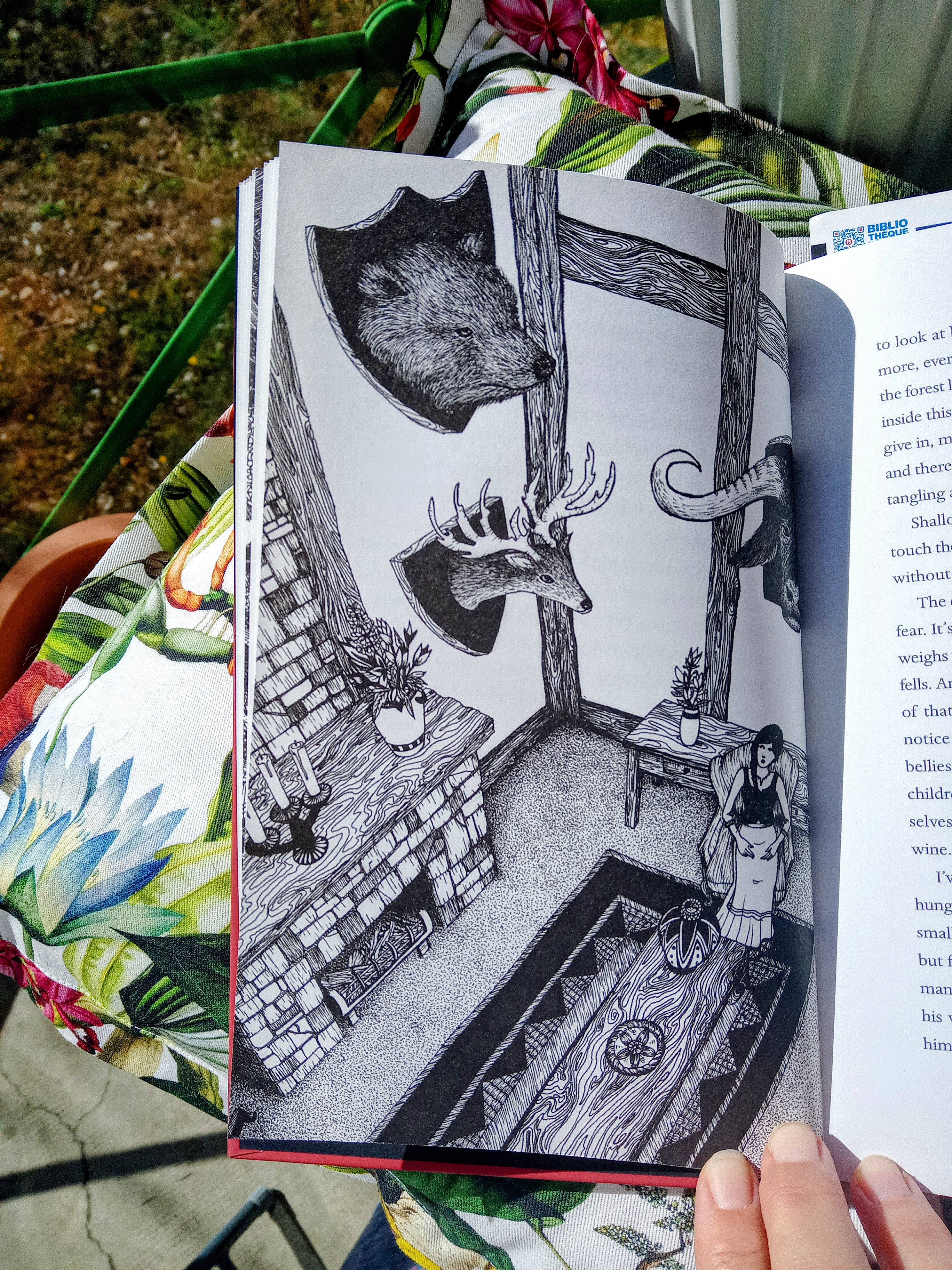 This tale can be told by the title and beautiful illustration by Karen Vaughan. There is one picture for every story and within them often lurk clues. As I read the opening paragraphs and saw the illustration, the reality of who really was the wolf, the colour of that cape, hit me like a punch. The horror of those trophies.
This tale can be told by the title and beautiful illustration by Karen Vaughan. There is one picture for every story and within them often lurk clues. As I read the opening paragraphs and saw the illustration, the reality of who really was the wolf, the colour of that cape, hit me like a punch. The horror of those trophies. 


 In that first chapter we meet a father, Jonathan, who has a strange perception of his baby daughter, who he is caring for alone. He desperately wants to care for her, but he feels that part of his role in doing that is to remove the aspect of her that she has inherited from her mother, who he believes is a siren.
In that first chapter we meet a father, Jonathan, who has a strange perception of his baby daughter, who he is caring for alone. He desperately wants to care for her, but he feels that part of his role in doing that is to remove the aspect of her that she has inherited from her mother, who he believes is a siren.
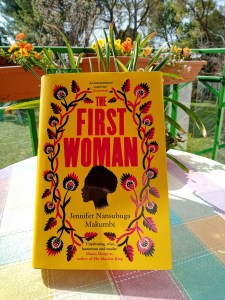 The First Woman might even have surpassed her debut novel Kintu which was fabulous and my outstanding read of 2018.
The First Woman might even have surpassed her debut novel Kintu which was fabulous and my outstanding read of 2018. The story is divided into five sections; The Witch (Nattetta, Bugerere, Uganda 1975), The Bitch (Kampala 1977), Utopia, When The Villages Were Young (Nattetta 1934) and Why Penned Hens Peck Each Other (1983).
The story is divided into five sections; The Witch (Nattetta, Bugerere, Uganda 1975), The Bitch (Kampala 1977), Utopia, When The Villages Were Young (Nattetta 1934) and Why Penned Hens Peck Each Other (1983).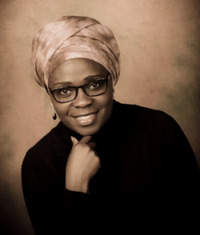 A Ugandan fiction writer, her first novel, Kintu, won the Kwani? Manuscript Project in 2013. Her second book is a collection of short stories, titled Manchester Happened (2019) for the UK/Commonwealth publication and Let’s Tell This Story Properly (US/Canada). It was shortlisted for The Big Book prize: Harper’s Bazaar.
A Ugandan fiction writer, her first novel, Kintu, won the Kwani? Manuscript Project in 2013. Her second book is a collection of short stories, titled Manchester Happened (2019) for the UK/Commonwealth publication and Let’s Tell This Story Properly (US/Canada). It was shortlisted for The Big Book prize: Harper’s Bazaar. 2020 marked the 25th anniversary of the Women’s Prize for Fiction, a feat that was celebrated by the creation of a reading challenge to read all the winners including last year’s Hamnet by Maggie O’Farrell.
2020 marked the 25th anniversary of the Women’s Prize for Fiction, a feat that was celebrated by the creation of a reading challenge to read all the winners including last year’s Hamnet by Maggie O’Farrell.

 Summer by Ali Smith (British)- In the present, Sacha knows the world’s in trouble. Her brother Robert just is trouble. Their mother and father are having trouble. Meanwhile the world’s in meltdown – and the real meltdown hasn’t even started yet. In the past, a lovely summer. A different brother and sister know they’re living on borrowed time. This is a story about people on the brink of change. They’re family, but they think they’re strangers. So: where does family begin? And what do people who think they’ve got nothing in common have in common?
Summer by Ali Smith (British)- In the present, Sacha knows the world’s in trouble. Her brother Robert just is trouble. Their mother and father are having trouble. Meanwhile the world’s in meltdown – and the real meltdown hasn’t even started yet. In the past, a lovely summer. A different brother and sister know they’re living on borrowed time. This is a story about people on the brink of change. They’re family, but they think they’re strangers. So: where does family begin? And what do people who think they’ve got nothing in common have in common? Detransition Baby by Torrey Peters (American)- Reese nearly had it all: a loving relationship with Amy, an apartment in New York, a job she didn’t hate. She’d scraped together a life previous generations of trans women could only dream of; the only thing missing was a child. Then everything fell apart and three years on Reese is still in self-destruct mode, avoiding her loneliness by sleeping with married men.
Detransition Baby by Torrey Peters (American)- Reese nearly had it all: a loving relationship with Amy, an apartment in New York, a job she didn’t hate. She’d scraped together a life previous generations of trans women could only dream of; the only thing missing was a child. Then everything fell apart and three years on Reese is still in self-destruct mode, avoiding her loneliness by sleeping with married men. Nothing But Blue Sky by Kathleen McMahon (Ireland) – Is there such a thing as a perfect marriage?
Nothing But Blue Sky by Kathleen McMahon (Ireland) – Is there such a thing as a perfect marriage? Consent by Annabel Lyon (Canada) – Saskia and Jenny are twins, alike in appearance only: Saskia has a single-minded focus on her studies, while Jenny is glamorous, thrill-seeking and capricious. Still, when Jenny is severely injured in an accident, Saskia puts her life on hold for her sister. Sara and Mattie are sisters with another difficult dynamic: Mattie needs almost full-time care, while Sara loves nothing more than fine wines, perfumes and expensive clothing, and leaves home at the first opportunity. But when their mother dies, Sara must move Mattie in with her. Gradually, Sara and Saskia learn that both their sisters’ lives, and indeed their own, have been altered by the devastating actions of one man…
Consent by Annabel Lyon (Canada) – Saskia and Jenny are twins, alike in appearance only: Saskia has a single-minded focus on her studies, while Jenny is glamorous, thrill-seeking and capricious. Still, when Jenny is severely injured in an accident, Saskia puts her life on hold for her sister. Sara and Mattie are sisters with another difficult dynamic: Mattie needs almost full-time care, while Sara loves nothing more than fine wines, perfumes and expensive clothing, and leaves home at the first opportunity. But when their mother dies, Sara must move Mattie in with her. Gradually, Sara and Saskia learn that both their sisters’ lives, and indeed their own, have been altered by the devastating actions of one man… No One Is Talking About This by Patricia Lockwood – (American) A woman known for her viral social media posts travels the world speaking to her adoring fans, her entire existence overwhelmed by the internet – or what she terms ‘the portal’. Are we in hell? the people of the portal ask themselves. Are we all just going to keep doing this until we die? Suddenly, two texts from her mother pierce the fray: ‘Something has gone wrong’ and ‘How soon can you get here?’
No One Is Talking About This by Patricia Lockwood – (American) A woman known for her viral social media posts travels the world speaking to her adoring fans, her entire existence overwhelmed by the internet – or what she terms ‘the portal’. Are we in hell? the people of the portal ask themselves. Are we all just going to keep doing this until we die? Suddenly, two texts from her mother pierce the fray: ‘Something has gone wrong’ and ‘How soon can you get here?’ How The One Armed Sister Sweeps Her House by Cherie Jones (Barbados) – In Baxter’s Beach, Barbados, Lala’s grandmother Wilma tells the story of the one-armed sister, a cautionary tale about what happens to girls who disobey their mothers. For Wilma, it’s the story of a wilful adventurer, who ignores the warnings of those around her, and suffers as a result.
How The One Armed Sister Sweeps Her House by Cherie Jones (Barbados) – In Baxter’s Beach, Barbados, Lala’s grandmother Wilma tells the story of the one-armed sister, a cautionary tale about what happens to girls who disobey their mothers. For Wilma, it’s the story of a wilful adventurer, who ignores the warnings of those around her, and suffers as a result.
 Unsettled Ground by Claire Fuller (British) – What if the life you have always known is taken from you in an instant? What would you do to get it back? Twins Jeanie and Julius have always been different from other people. At 51 years old, they still live with their mother, Dot, in rural isolation and poverty. Inside the walls of their old cottage they make music, and in the garden they grow (and sometimes kill) everything they need for sustenance.
Unsettled Ground by Claire Fuller (British) – What if the life you have always known is taken from you in an instant? What would you do to get it back? Twins Jeanie and Julius have always been different from other people. At 51 years old, they still live with their mother, Dot, in rural isolation and poverty. Inside the walls of their old cottage they make music, and in the garden they grow (and sometimes kill) everything they need for sustenance. Because Of You by Dawn French (British) – Tick-tock, tick-tock, tick-tock . . . midnight.
Because Of You by Dawn French (British) – Tick-tock, tick-tock, tick-tock . . . midnight. Small Pleasures by Clare Chambers (British) – 1957, the suburbs of South East London. Jean Swinney is a journalist on a local paper, trapped in a life of duty and disappointment from which there is no likelihood of escape.
Small Pleasures by Clare Chambers (British) – 1957, the suburbs of South East London. Jean Swinney is a journalist on a local paper, trapped in a life of duty and disappointment from which there is no likelihood of escape. Piranesi by Susanna Clarke (British) – Piranesi lives in the House.
Piranesi by Susanna Clarke (British) – Piranesi lives in the House. The Golden Rule by Amanda Craig (British) – Intelligent, bookish and hard-working, Hannah is part of a generation that grew up in hope and has tried to escape life in Cornwall’s ugliest coastal town through a university degree, a professional career, and marriage to the privileged Jake. However, her life has gone disastrously wrong. Jake has left her for Eve and, reduced to near penury, she is desperate enough to agree to murder the brutal husband of Jinni, the rich woman she meets in the First Class carriage of the London to Penzance train, in return for having Jake killed.
The Golden Rule by Amanda Craig (British) – Intelligent, bookish and hard-working, Hannah is part of a generation that grew up in hope and has tried to escape life in Cornwall’s ugliest coastal town through a university degree, a professional career, and marriage to the privileged Jake. However, her life has gone disastrously wrong. Jake has left her for Eve and, reduced to near penury, she is desperate enough to agree to murder the brutal husband of Jinni, the rich woman she meets in the First Class carriage of the London to Penzance train, in return for having Jake killed. Exciting Times by Naoise Dolan (Ireland) – When you leave Ireland aged 22 to spend your parents’ money, it’s called a gap year. When Ava leaves Ireland aged 22 to make her own money, she’s not sure what to call it, but it involves:
Exciting Times by Naoise Dolan (Ireland) – When you leave Ireland aged 22 to spend your parents’ money, it’s called a gap year. When Ava leaves Ireland aged 22 to make her own money, she’s not sure what to call it, but it involves: Burnt Sugar by Avni Doshi (American) – In her youth, Tara was wild. She abandoned her arranged marriage to join an ashram, took a hapless artist for a lover, rebelled against every social expectation of a good Indian woman – all with her young child in tow.
Burnt Sugar by Avni Doshi (American) – In her youth, Tara was wild. She abandoned her arranged marriage to join an ashram, took a hapless artist for a lover, rebelled against every social expectation of a good Indian woman – all with her young child in tow. Luster by Raven Leilani (American) – Edie is just trying to survive. She’s messing up in her dead-end admin job in her all white office, is sleeping with all the wrong men, and has failed at the only thing that meant anything to her, painting. No one seems to care that she doesn’t really know what she’s doing with her life beyond looking for her next hook-up.
Luster by Raven Leilani (American) – Edie is just trying to survive. She’s messing up in her dead-end admin job in her all white office, is sleeping with all the wrong men, and has failed at the only thing that meant anything to her, painting. No one seems to care that she doesn’t really know what she’s doing with her life beyond looking for her next hook-up. It is the story of a disenchanted man, a man who reluctantly returned to Northern Ireland from London with his wife Moira, who was keen to return. Now he is the manager of a hotel, a job he doesn’t particularly like, having left his poetry aspirations far behind him, following in the footsteps of his father, a man he feels resentment towards.
It is the story of a disenchanted man, a man who reluctantly returned to Northern Ireland from London with his wife Moira, who was keen to return. Now he is the manager of a hotel, a job he doesn’t particularly like, having left his poetry aspirations far behind him, following in the footsteps of his father, a man he feels resentment towards.

 Cora is an African slave on a cotton plantation in Georgia and within the first few pages we learn of her grandmother’s death while working in the fields and not long after this, her mother Mabel’s disappearance, a runaway.
Cora is an African slave on a cotton plantation in Georgia and within the first few pages we learn of her grandmother’s death while working in the fields and not long after this, her mother Mabel’s disappearance, a runaway. The story reverses and we learn how it came about that Elena and her children Nando and Karina are in America, while Mauro and Talia are in Colombia. How dreamer Mauro fell in love with contented Elena, in the market, their lives being played out on a small canvas until Mauro shared his dream and Elena facilitated it.
The story reverses and we learn how it came about that Elena and her children Nando and Karina are in America, while Mauro and Talia are in Colombia. How dreamer Mauro fell in love with contented Elena, in the market, their lives being played out on a small canvas until Mauro shared his dream and Elena facilitated it. It’s an interesting blend of narrative perspectives, the switch between Talia’s adventurous journey south and the backstory of how she came to be escaping to escape, including her parents story. Through Mauro and Talia we are also exposed to their cultural stories, the Andean myths of their people, of serpent, jaguar, condor and the one story that haunts Mauro, one he wished he’d never learned, that he will never tell.
It’s an interesting blend of narrative perspectives, the switch between Talia’s adventurous journey south and the backstory of how she came to be escaping to escape, including her parents story. Through Mauro and Talia we are also exposed to their cultural stories, the Andean myths of their people, of serpent, jaguar, condor and the one story that haunts Mauro, one he wished he’d never learned, that he will never tell.
 Isabelle Allende looks back over her life from the viewpoint of her gender, as a woman and looks at how the family she was born into, and their circumstances contributed to her own growth and development and attitudes.
Isabelle Allende looks back over her life from the viewpoint of her gender, as a woman and looks at how the family she was born into, and their circumstances contributed to her own growth and development and attitudes.
 Being in the later years of her life, she also reflects on that era, on the post retirement years and her attitude towards them, how she sees that she has changed, what she is and isn’t prepared to compromise on.
Being in the later years of her life, she also reflects on that era, on the post retirement years and her attitude towards them, how she sees that she has changed, what she is and isn’t prepared to compromise on.